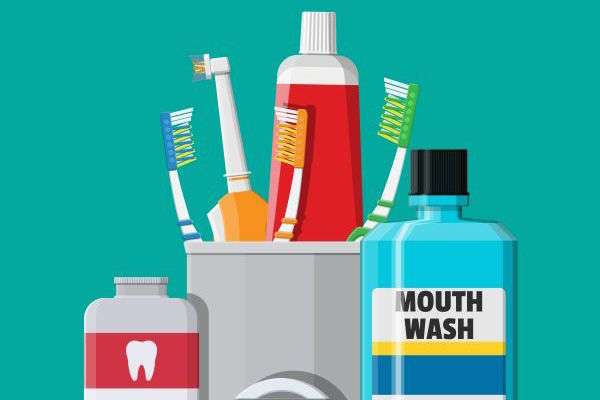 Lifestyle choices are as important to good oral and dental health as visiting the family dentist twice per year. Establishing healthy day-to-day routines protects the teeth and gums and keeps mouth chemistry balanced. Develop good practices in children at a young age to help build habits that can last a lifetime. Making changes at any age can have a positive effect on overall well-being.
Lifestyle choices are as important to good oral and dental health as visiting the family dentist twice per year. Establishing healthy day-to-day routines protects the teeth and gums and keeps mouth chemistry balanced. Develop good practices in children at a young age to help build habits that can last a lifetime. Making changes at any age can have a positive effect on overall well-being.
Techniques for a healthy life
Mouth care and diet are two primary contributors to oral and dental health. Healthy habits and good techniques in both areas can lead to improved mouth conditions.
Practice good oral hygiene
It is important to brush teeth twice per day. Everyone should brush before bed, after consuming the last food and beverages of the day — other than water. Most people brush upon waking as well, but the first occurrence can also be after breakfast. It is helpful to set a schedule that is maintained every day, particularly for children.
How a person brushes is as important as how often. Brush for two minutes, gently moving the head of the toothbrush in small circles over all teeth and gum surfaces, and finish by lightly brushing the tongue. Flossing not only removes particles from between the teeth, but it also stimulates the gums. A family dentist can provide guidance on where more attention is needed and demonstrate proper brushing techniques.
Consume healthy foods and drinks
A good diet is imperative for overall health, and that includes oral and dental health. The choices an individual makes in what to eat or drink has long-term implications. Getting proper nutrition improves the entire system. It leads to stronger teeth, healthier gums, and lower acid levels in the mouth.
Drink plenty of water. The body needs water to stay healthy. Drinking water keeps a person hydrated and aids in flushing toxins and waste from the body. Eat a lot of a variety of vegetables, including dark, leafy greens and cruciferous varieties. Consume whole grains and lean proteins, which provide the body with important nutrients while limiting fat and sugar intake.
Consume some foods and drinks in moderation
There are some foods and drinks that are healthy, though consuming too much is harmful. The body and brain need healthy fats, so it is important to include foods that contain both polyunsaturated and monounsaturated fats, such as:
- Avocados
- Nuts
- Peanuts
- Fish, such as salmon, tuna, mackerel, and herring
- Fish oil
- Tofu
- Flaxseed
- Sunflower, pumpkin, and sesame seeds
Teas and coffee can stain the teeth, but they also have a number of properties that provide health benefits. Consuming them in moderation boosts antioxidants that are important to the immune system and overall health. Professional cleaning twice a year from a family dentist or hygienist can help reduce staining.
Avoid unhealthy foods and drinks
Foods and drinks that are high in sugar should be avoided. Sugar causes tooth decay and is a significant contributor to the development of cavities. Sugar can be found in many of the processed foods people eat, as well as in unsweetened fruit juices, baked goods, and condiments.
Conclusion
Healthy lifestyle choices contribute to oral and dental health. Children and adults benefit from good oral hygiene practices and a well-balanced diet.
Request an appointment or call Matthew Parilla DMD at 831-207-4692 for an appointment in our Hollister office.
Related Posts
When individuals experience gum problems of any kind, it is imperative that they visit a family dentist for a thorough cleaning and possibly treatment. Gum concerns, even mild ones, are likely indicative of gum disease, the number-one cause of tooth loss in adults. Unfortunately, it often goes unnoticed in the early stages, and by the…
Regular trips to the family dentist are essential for staying healthy. Ensuring that the mouth is in tip-top shape can aid the body in defending against harmful bacteria. Even with a good at-home oral health regimen, keeping up with regular exams as recommended is crucial to catching new developments sooner.The body's immune system repels foreign…
Whether an individual has simply not been to the family dentist in a few years or switched to a new provider, a first visit can be overwhelming and possibly nerve-wracking. Knowing what to expect during the first visit and how to prepare can help ease individuals’ concerns and ensure the appointment goes as smoothly as…
